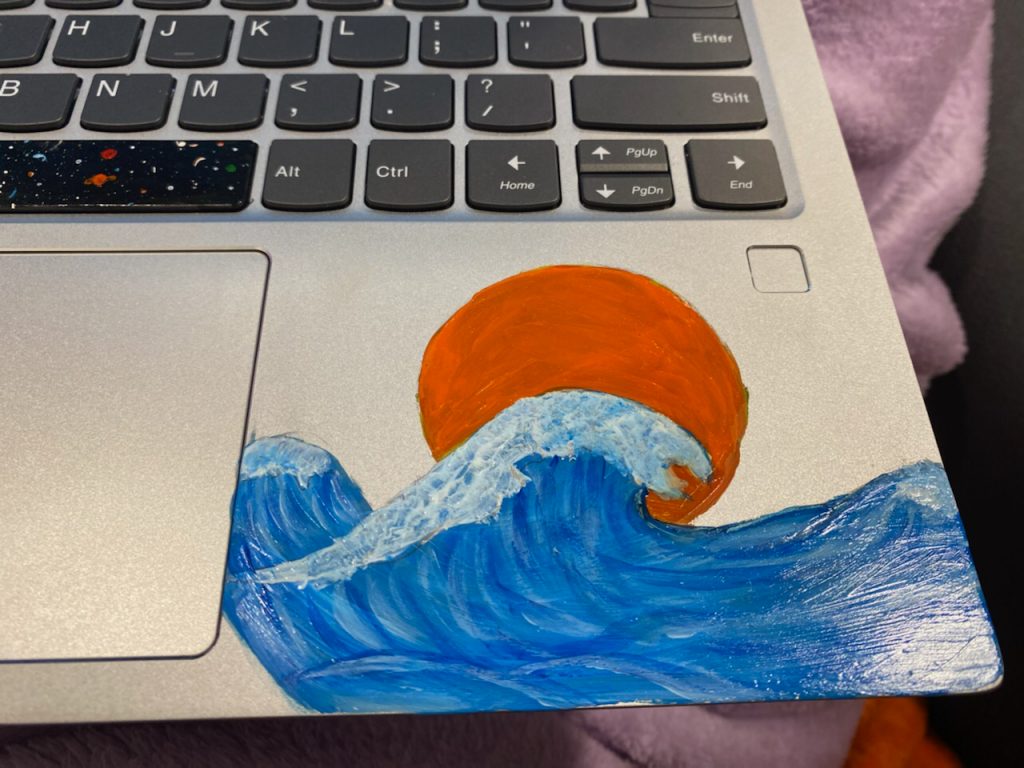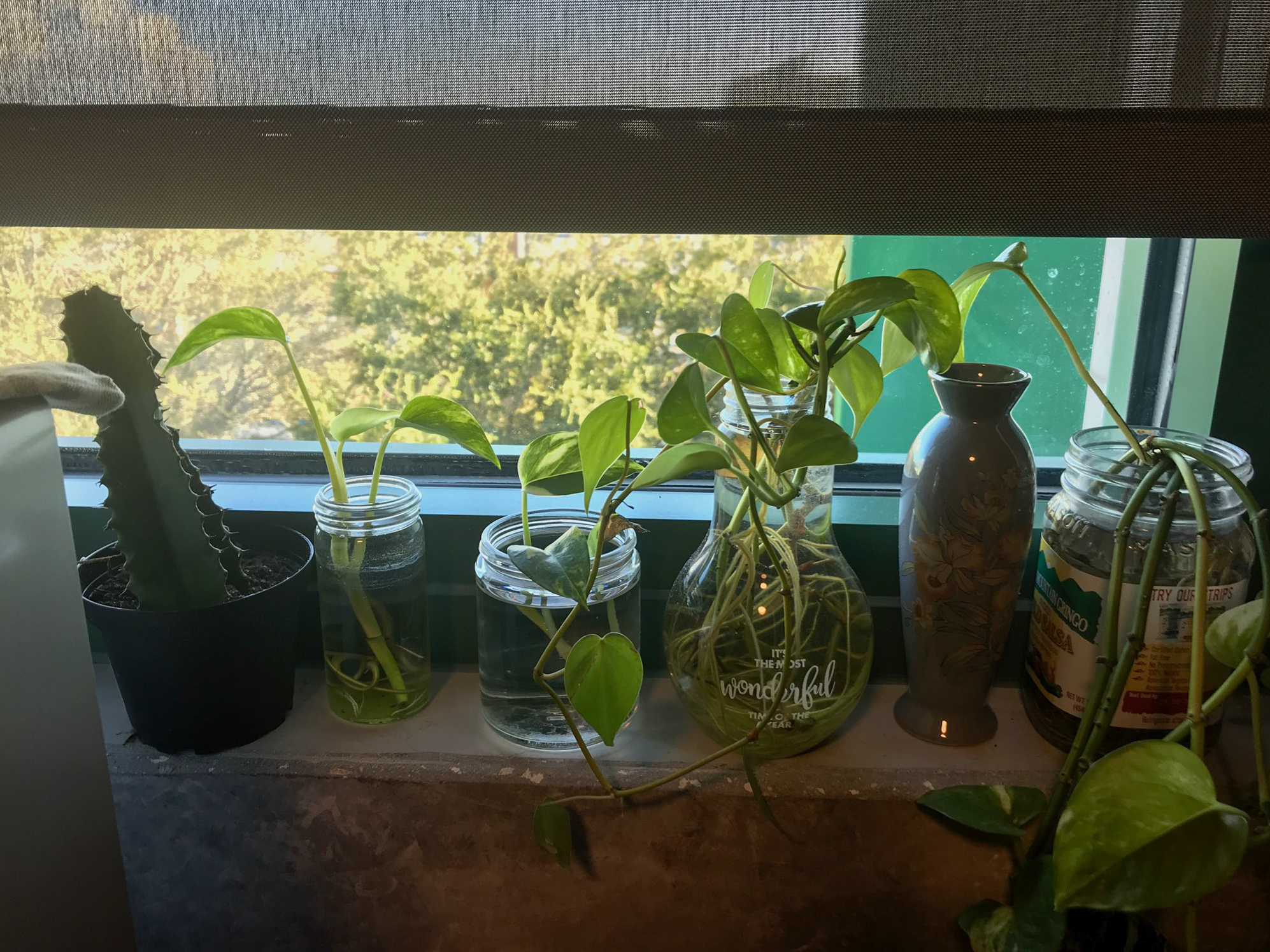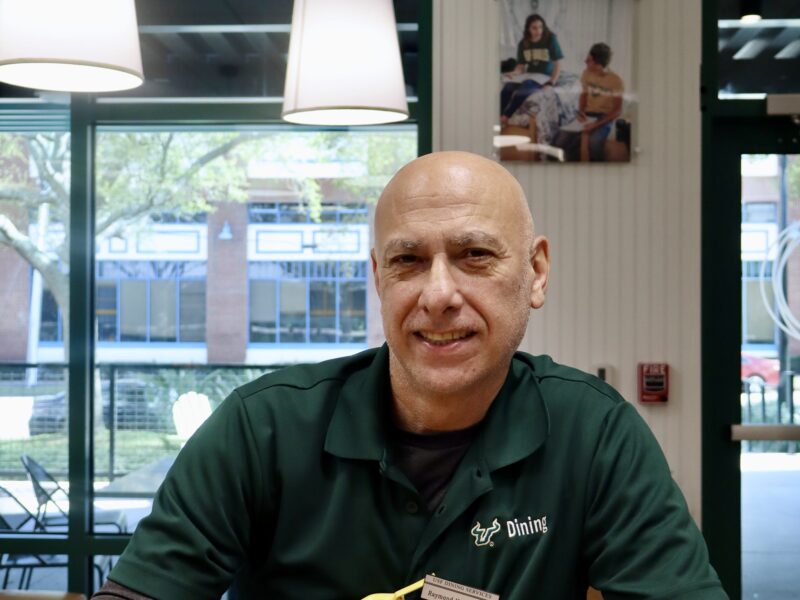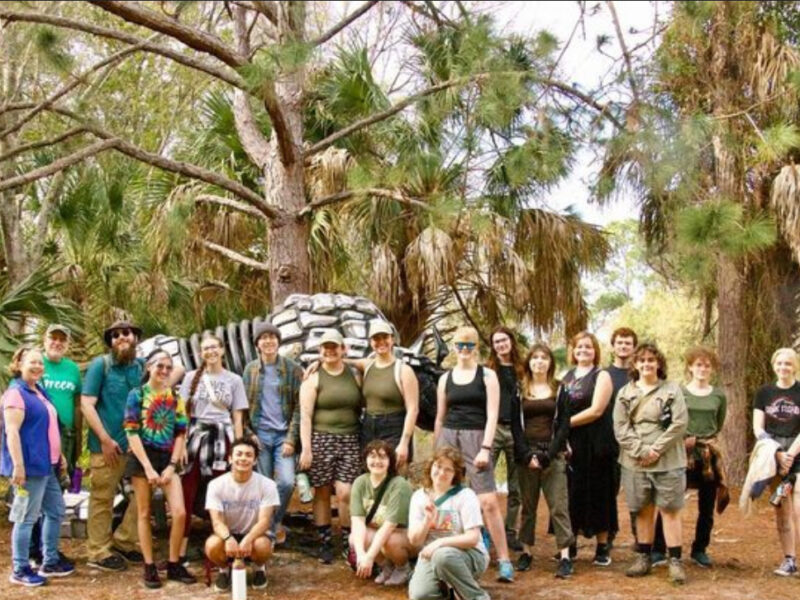Pictured Above: Osprey Suites RA Libby Casale has taken up a new hobby in plants. She uses her pothos plant, Salsa (right), to help build her windowsill garden.
Courtesy of Libby Casale
By Sophie Ojdanic
Though residence halls remain under capacity, the residents within them have taken to new routines and hobbies to work through the monotony of life in a pandemic.
Ibis Hall, previously known as The University Student Center, has been closed to residents and designated as isolation suites. In a Sept. 4 update, Regional Chancellor Martin Tadlock shared that there were no students in isolation.
The St. Petersburg campus has seen 14 positive cases of COVID-19 as of Sept. 25.
Residence Hall One and Residence Hall Three – newly dubbed Pelican Apartments and Osprey Suites, respectively – are both open at designed capacity, but are not nearly full.
Pelican Apartments is only 62 percent full while Osprey Suites is only 48 percent full.
Libby Casale, a senior history major, lives in Osprey Suites, which opened this fall and plans to open a new dining hall on the first floor come spring.
“I wanted to live here to experience what it was like living in the new building,” Casale said. “I always looked forward to updates on the progress of the building last year and was thrilled to have the opportunity to be one of the first residence assistants (RAs) to live here.”
Casale, an RA, lives in a single-room suite. Despite this, she still sees the university’s outreach.
“There’s still a strong sense of community and department outreach like there has been in the past,” Casale said. “It makes me extremely happy that clubs and organizations still put on events virtually – it makes me feel connected like before.”
Israel Hickey, a junior biology major, lives in a six to eight person shared bedroom suite. Hickey has one roommate in his bedroom and another in the bedroom next door, meaning only three out of the room’s eight possible bed spaces have been filled.
Hickey cited the comradery of residence halls as key to his choice to live on-campus.
“Being surrounded by people who are doing the same things – studying – is encouraging,” Hickey said.
Hickey, who has mostly online classes and one in-person lab, said the adjustment to online learning “has been difficult, but I won’t say impossible.”
The pandemic has moved most USF St. Petersburg classes to either fully or partially online, meaning that residents often spend their days in their rooms.
“I have definitely seen an increase (in) my screen time … since March,” Casale said. “However, I have been trying to take breaks for myself — taking a small walk or drive — so that I’m away from the screen.
“I think the residence halls have made me feel more productive in my schoolwork and motivate me to be actively engaged with my online classes.”
Basia Kuehn, a junior health sciences major who lives in Osprey Suites, also saw difficulties with the monotony.
“Online learning makes it very difficult being a hands-on learner,” Kuehn said. “It takes a lot of effort to stay focused but right now it just feels like I’m submitting assignments more than I’m learning.
“The screen time means that rather than going out and making connections, people are inside stuck on their screen studying. I’ve had to do a lot of adjusting to being online. I really have put in a lot of effort when watching a two hours lecture with a professor speaking in a monotone voice.”
Carson Owen, a junior marketing major, lives in Osprey Suites. Owen’s classes are all hybrid, meaning Owen splits time between online classes in his room and in-person class sessions.
“It’s been hard,” Owen said. “I definitely don’t learn online … at all. I don’t know if being in the dorms is impacting how I learn or not; if anything I’m more focused than at home.”
Hickey said his screen time has affected him greatly.
“Every day, I want to just sit outside by myself,” Hickey said.
He’s grateful, he said, that his daily screen time hasn’t affected his sleep.
Casale stressed the importance of self care and personal health during the pandemic.
“I’ve made sure to really focus on my personal health and I’ve seen that I’m a lot more motivated in my job and schoolwork because of that,” Casale said.
Hickey said he spent more time talking to people than before the pandemic.
“I have noticed I call people more often,” Hickey said. “I have been more appreciative of the people in my life who I haven’t seen in a while.”
For similar reasons, Hickey’s favorite part of his room is the dinner table, where he spends time talking to his roommates while they eat.
Residents have taken to different methods and hobbies to keep themselves occupied during the pandemic, ranging from beach trips to windowsill gardening.
To relax and change his scenery, Owen said he has been going to the beach.
“I wouldn’t say I’ve made day to day changes because of online classes, but I have made changes for every week,” Owen said. “I try and go to the beach every week at least once.”
Kuehn’s COVID-19 hobby comes in the form of art.

Courtesy of Basia Kuehn
“I’ve found that through quarantine I’ve actually developed some self-proclaimed amazing art skills.”
Casale has added plants and more wall decorations to her room in an effort to keep her surroundings vibrant.
“I recently got a pothos plant that I’ve been propagating to build a whole array of them in different jars,” Casale said. “The main pothos plant is named Salsa. I also love being able to color code my walls with my various anime posters.”
Casale said her decorations help make her room feel more like “home.”
Hickey has also taken up plants, buying two to make what he calls a “succulent garden” for his desk.
“It’s a little something I have to look forward to every day,” Hickey said.



